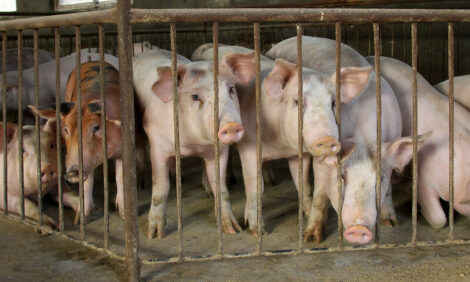



Scotland seeks to eradicate PRRS
Scotland's pig industry is uniting to eradicate an endemic disease which costs the industry over £3 million per year.According to reporting from Farm Journal's Pork, Scotland's pig industry will prioritise eradicating porcine reproductive and respiratory syndrome (PRRS).
The deadly disease was first discovered in pigs in Scotland in 1992. Nearly 27 years later, a national effort is beginning to control the disease.
“Eliminating PRRS in Scotland would undoubtedly improve pig health and welfare by reducing disease and mortality in Scottish pigs,” said pig veterinarian Grace Webster, chairman of the Quality Meat Scotland (QMS) working group, reports The Press and Journal.
“As pigs with PRRS are affected by secondary infections, eliminating the virus would help reduce antimicrobial use in pigs and could also reduce abattoir condemnations due to chronic health issues such as pleurisy.”
Recent research indicates that 40 percent of Scottish herds are now affected by PRRS, which is estimated to cost around £80 per sow, £3.50 per finished pig, or typically £40,000 for a 500-sow herd per year.
Pig producers, vets, pharmaceutical companies, pig specialists and industry bodies in Scotland are working together to eliminate the disease, starting with the Moray coast region.
The epidemiology team at SAC Inverness has mapped the disease, showing each individual site, by unit type, size and PRRS status. Phase two testing will begin soon to identify what strains are present on infected units and determine where biosecurity needs to be strengthened.
Webster said viral isolates from Scottish farms that have had their DNA sequenced are showing diversity from region to region. She believes eliminating the virus quickly will protect the Scottish herd against the development of highly pathogenic strains.
The eradication project is expected to take between three and five years to complete.








